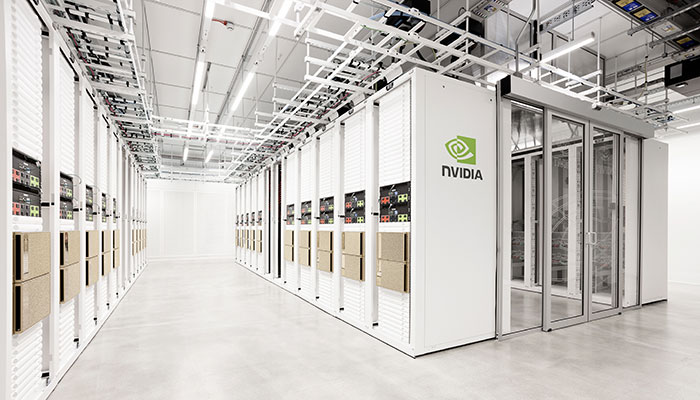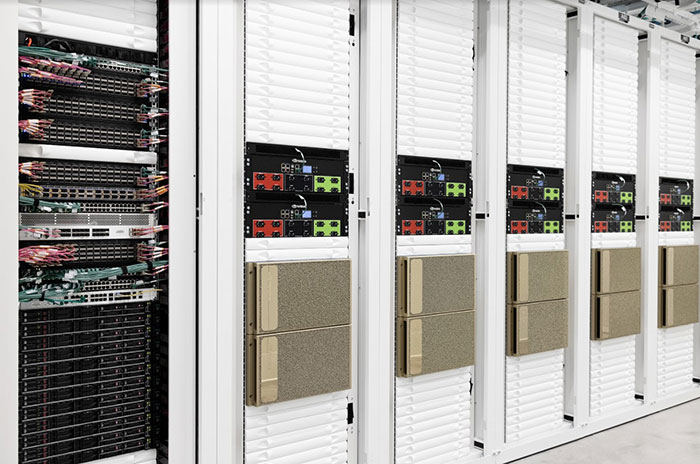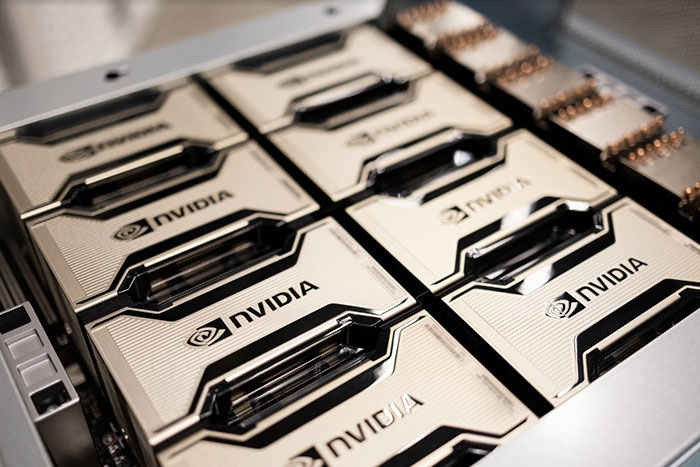Nvidia has announced that Cambridge-1, the United Kingdom’s most powerful supercomputer, will formally be powered up today and made available to various commercial and academic organisations. Nvidia has invested $100 million in Cambridge-1, which becomes the 12th fastest supercomputer in Europe, and 41st fastest in the world according to the Top500 list. Headlining performance numbers are its touted >400 petaflops of AI performance, and 8 petaflops of Linpack performance. Cambridge-1 is based upon a SuperPOD of eighty DGX-A100 systems integrating Nvidia A100 GPUs, BlueField 2 DPUs, and Nvidia HDR InfiniBand networking technology.

HEXUS reported upon Cambridge-1 back in March, as the project was then said to be very nearly ready. Despite its moniker, the supercomputer system is going to be based in Harlow, at a facility operated by Kao Data, powering Cambridge-1 with 100 per cent renewable sourced energy.

The plan is that Cambridge-1 is going to be dedicated to advances in life sciences and healthcare. Thus, its first projects are already booked by the likes of AstraZeneca, GSK, Guy's and St Thomas' NHS Foundation Trust, King's College London and Oxford Nanopore Technologies. Some specific tasks will be in trying to gain a "deeper understanding of brain diseases like dementia, using AI to design new drugs and improving the accuracy of finding disease-causing variations in human genomes," says Nvidia in its blog post.

The UK is already quite strong in life sciences, and the commissioning of Cambridge-1 is expected to have a positive impact on this industry of approx £600 million over the next 10 years.
If you want to know more specifics about the AstraZeneca, GSK, and other projects, Nvidia's blog post fleshes out details about these projects and the hopes of the scientists applying Cambridge-1 to accelerate research. The Cambridge-1 inauguration event takes place at 2pm UK time today, and you can watch it live/recorded via the video link below.
With the Cambridge-1 project complete, Nvidia hopes to continue its work in the UK by building an 'AI Centre for Excellence' in Cambridge, featuring a new Arm-based supercomputer, which will support more industries across the country.






